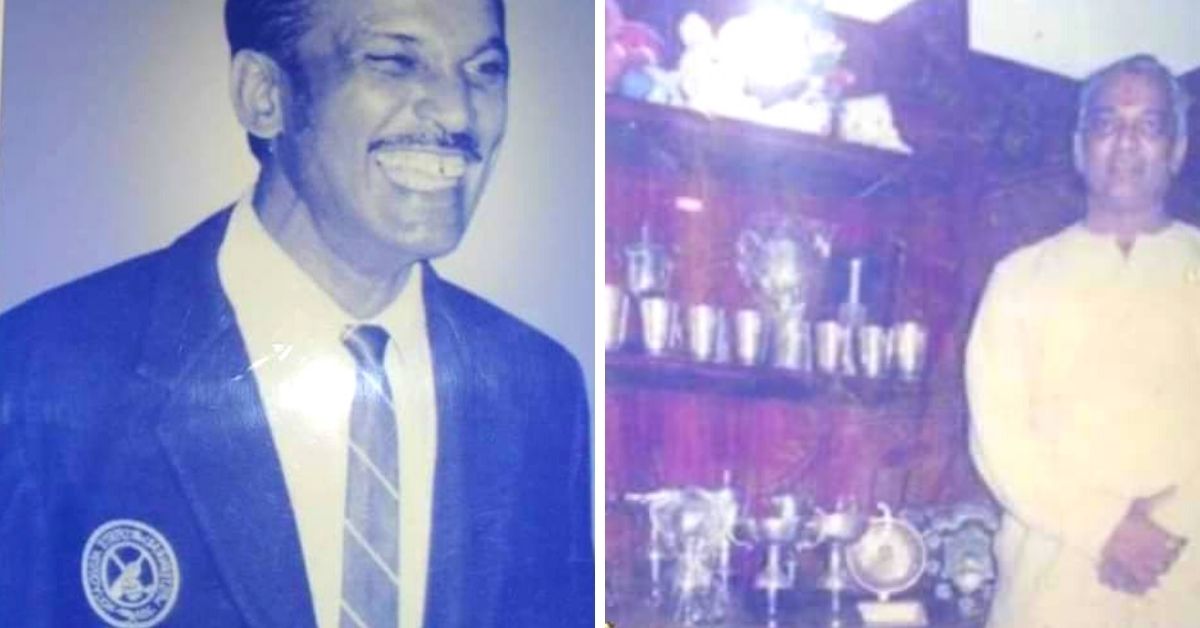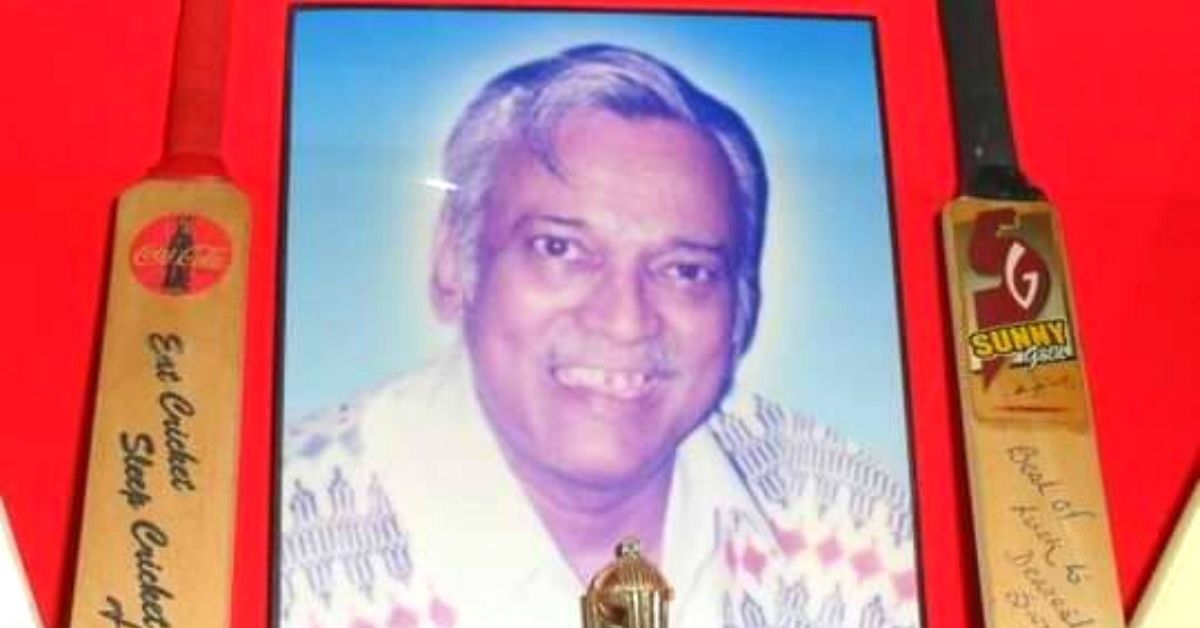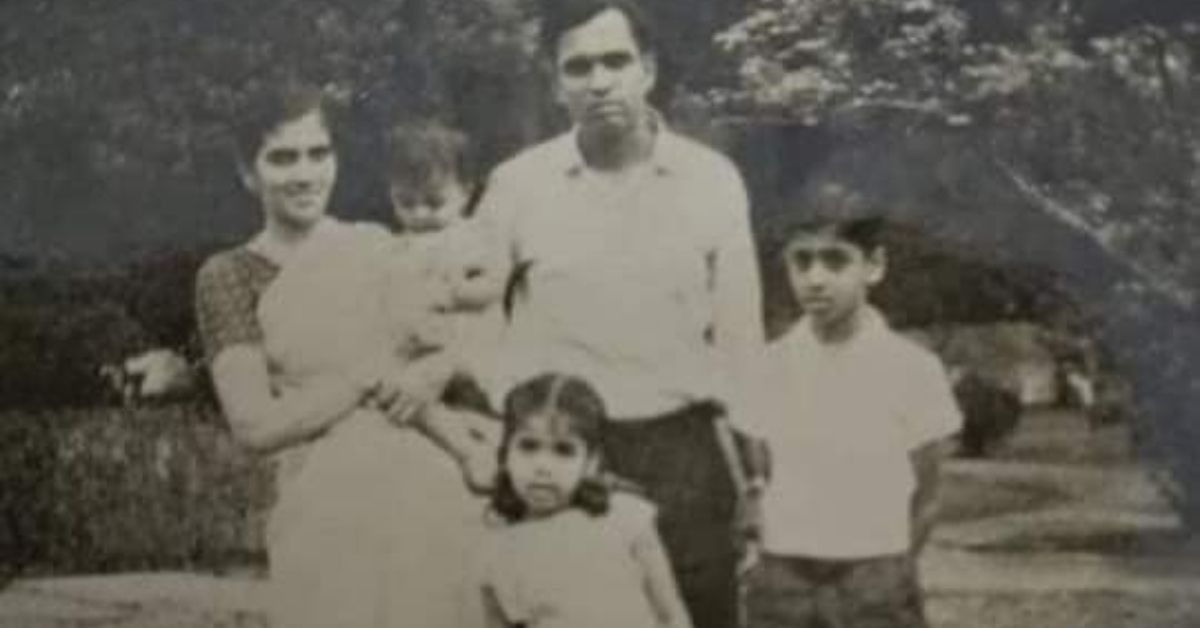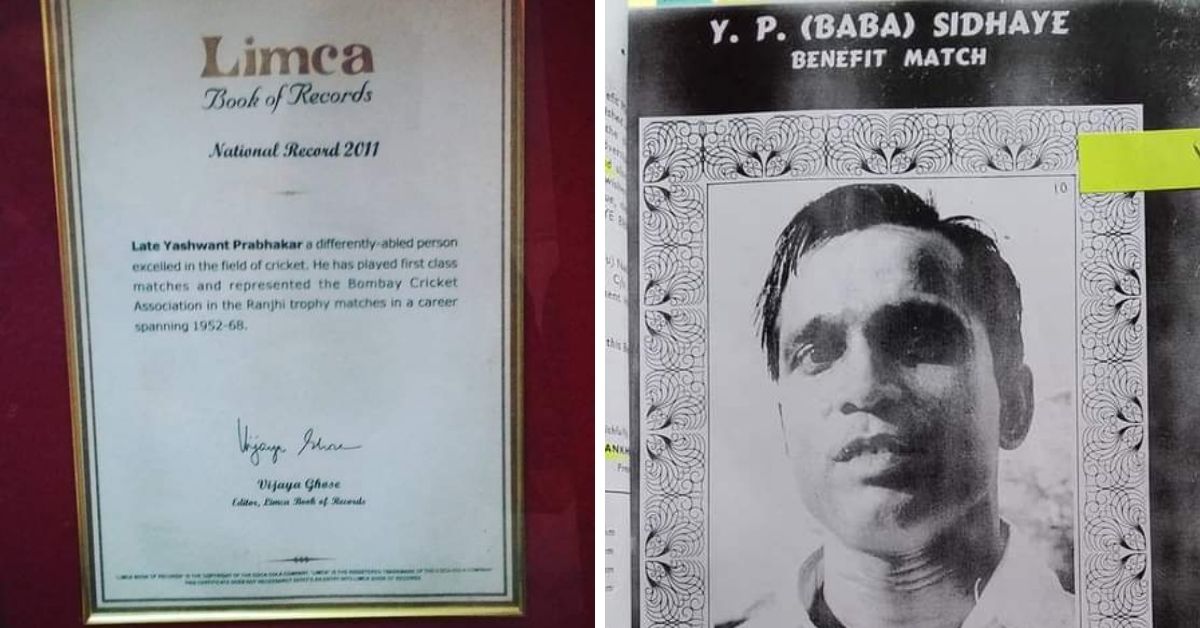51 Matches & 1862 Runs: The Inspiring Life of India’s First Deaf & Mute Cricketer
Yashwant Prabhakar alias Baba Sidhaye played his first Ranji match at 18 and was unstoppable ever since. His son, Pravin remembers the legendary deaf and mute cricketer.

He was barely five when he started playing cricket at Pune’s Deccan Gymkhana and by 18, he was playing domestic first-class cricket championship, aka the Ranji trophy. Leaping ahead in his cricketing career, this young boy was leaving spectators and players spellbound.
Known for his hard hitting batting and quick fielding, he went on to play 51 first class matches scoring a total of 1,862 runs.
Such is the story of Yashwant Prabhakar alias Baba Sidhaye, who is reportedly India’s first hearing and speech impaired cricketer.

His cricketing career lasted between 1949 and 1966. Even after retirement he continued to associate with his favourite sport by coaching the new and upcoming players, both abled and disabled.
His immense contribution to the cricketing world inspired several generations of cricketers, including his son Pravin.
“My father was a terrific cricketer, and I say that with absolutely no biases. While growing up, I would tag along with him for all his matches. His disabilities were never an issue for him or the team that he played for. He was fondly called ‘panther’ for his exceptional fielding abilities,” Pravin tells The Better India.
A player, coach and record breaker

Born in Ahvaz, Iran in April 1932, Sidhaye was the youngest of four siblings. His father was a general manager in a company. He left for India after doctors declared Sidhaye to be mute and deaf.
Once here, the children were enrolled in schools and encouraged to play sports of their choice. Being a disabled at a time when disability was considered to be a burden, was not easy for him. He was often discriminated against so he completely poured himself into various sporting activities like cricket, kho kho and wrestling.

“He was a gifted player with a sixth sense. He was a quick learner and could grasp anything easily. His talent for batting was spotted by Sadashiv Ganpatrao Shinde, who was a known test player then. They met at the gymkhana and Shinde asked my father to choose one sport and pursue it professionally. That was the beginning of what would be an illustrious career,” says Pravin.
After his first Ranji match in 1949, there was no stopping him. He played 42 Ranji matches for Maharashtra, Mumbai and Railways as a right hand middle order batsman. He was also selected for the prestigious Duleep Trophy multiple times from the West and North Zone.
Though he never made it to the Indian team for international matches, he did play against teams like Australia, New Zealand and West Indies as part of state and division teams.
His performances in all these matches were widely spoken about in the state teams and even covered by several media houses.

His match at PJ Hindu Gymkhana in Marine Lines is memorable for he hit a six and the ball was believed to have landed in the Arabian Sea.
Another worthwhile performance was scoring a century within 59 minutes. It was considered a huge deal back in the day. According to Pravin, Sidhaye even scored double centuries five times.
After making his mark as a batsman, vice captain and captain, Sidhaye added another feather to his cap with coaching for cricketing associations.
He trained players who went to play for Ranji and one of his students was Balwinder Singh Sandhu, a member of the 1983 World Cup winning squad.
“He was a very good teacher. We never had any problem understanding his language. I was young at that time so I could not understand the value of his teachings at that age. But later, those lessons proved to be very important for me to grow as a cricketer,” Sandhu told Sports Savour.
Sidhaye also coached the disability men’s cricketing team and went to coach several players for free who could not afford coaching.

“Three of his students played for India in the disabled team against England in 2002. Unfortunately, in the same year he breathed his last. He was mentioned in the Limca Book of Records and was honoured by the World Human Rights Protection Association (WHRPA), an international human rights NGO,” adds Pravin.
Edited by Yoshita Rao
If you found our stories insightful, informative, or even just enjoyable, we invite you to consider making a voluntary payment to support the work we do at The Better India. Your contribution helps us continue producing quality content that educates, inspires, and drives positive change.
Choose one of the payment options below for your contribution-
By paying for the stories you value, you directly contribute to sustaining our efforts focused on making a difference in the world. Together, let’s ensure that impactful stories continue to be told and shared, enriching lives and communities alike.
Thank you for your support. Here are some frequently asked questions you might find helpful to know why you are contributing?


This story made me
-
97
-
121
-
89
-
167











